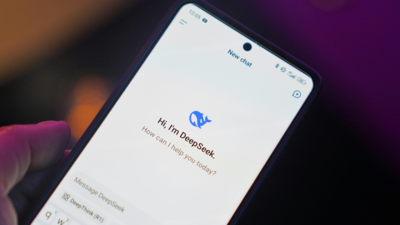ARTICLE AD BOX

A senior researcher from DeepSeek, the Chinese artificial intelligence (AI) developer that gained global attention for its low-cost models, has warned that the technology poses a long-term threat to society, despite the short-term benefits it will provide to humanity.
The comments came from Chen Deli, a senior researcher at DeepSeek, during the company's first major public appearance in nearly a year at the government-organised World Internet Conference in Wuzhen, Zhejiang province.
‘Positive about technology, negative about its impact’
Chen took the stage alongside executives from five other prominent AI companies, collectively known in China as the “six little dragons”, news agency Reuters reported. When asked about DeepSeek’s global success and the progress of open-source AI, Chen acknowledged the technology's short-term aid to humans but expressed pessimism about its future impact.Chen said that AI could threaten massive job losses within the next 5 to 10 years as models become capable enough to take over human roles.“In the next 10-20 years, AI could take over the rest of work (humans perform) and society could face a massive challenge, so at the time tech companies need to take the role of 'defender',” he said.“I'm extremely positive about the technology but I view the impact it could have on society negatively,” he added.
He stressed that AI firms must be aware of these potential risks.
DeepSeek’s rise in tech industry
DeepSeek initially gained global attention in January by releasing a low-cost AI model, named R1, which notably outperformed several leading US models in various benchmarks. After this announcement, US stock market losses were significant, with estimates for the total value wiped out from US tech stocks around $1 trillion, and Nvidia alone losing nearly $600 billion in market capitalisation.
It also caused the world's top 500 wealthiest individuals to lose a combined $108 billion. DeepSeek disclosed in a peer-reviewed article published in the academic journal Nature that it spent a significantly low amount—just $294,000—to train the R1 model. This cost is in sharp contrast to those cited by US competitors. For comparison, OpenAI CEO Sam Altman stated in 2023 that “foundational model training” cost “much more” than $100 million, although his company has not provided detailed figures, Reuters reported previously.

 4 days ago
6
4 days ago
6







 English (US) ·
English (US) ·